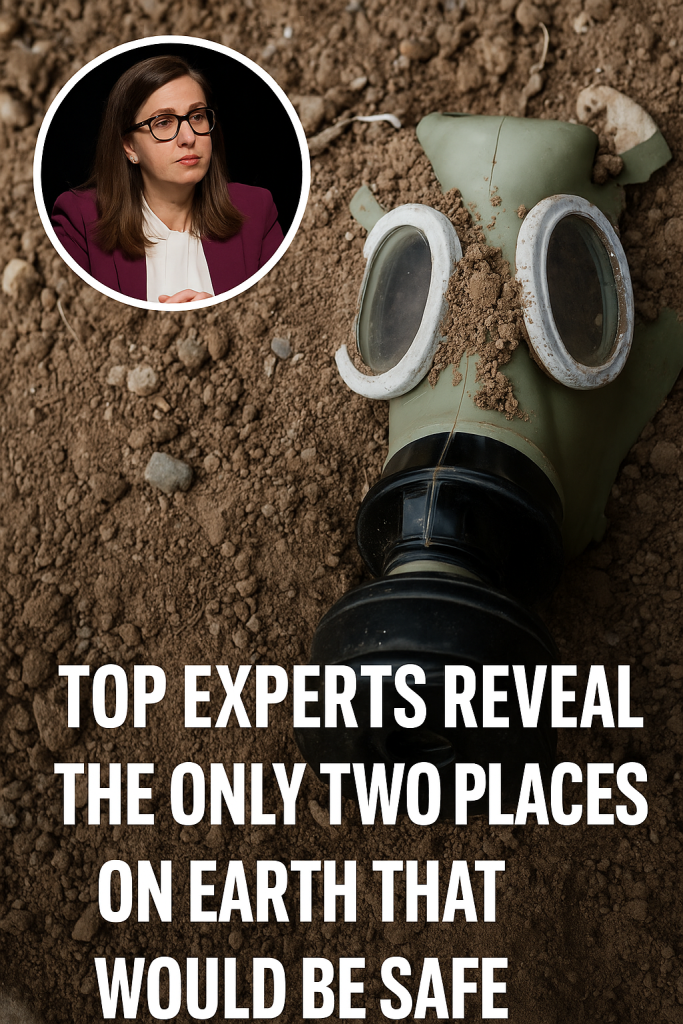As global tensions rise and the threat of nuclear conflict looms larger in 2024, experts are sounding urgent alarms about the few places on Earth that might remain safe in the grim event of a full-scale nuclear war. Recent expert analyses have pinpointed exactly two locations deemed the safest refuges amid a potential nuclear fallout, igniting conversations worldwide about preparedness and survival strategy.
While the concept of nuclear war evokes widespread fear and uncertainty, leading defense and geopolitical experts have combed through decades of nuclear strategy, radiation patterns, and geographical factors to identify the most viable sanctuaries. According to the latest insights, the tiny number of truly safe zones reflects the catastrophic scale of nuclear warfare’s destructive power.
Why Only Two Places?
Nuclear conflict is predicted to generate massive radioactive fallout, widespread infrastructure collapse, and long-lasting environmental devastation. Most countries, especially those embroiled in global politics, would face severe radiation exposure and loss of access to critical resources. Strategic expert panels have emphasized that only isolated, low-profile locations with unique geographical and meteorological conditions stand a realistic chance of remaining uncontaminated and habitable in the immediate aftermath of nuclear exchanges.
The Two Safe Havens Unveiled
After analyzing geographic isolation, prevailing wind directions, climate factors, and political neutrality, the experts have highlighted two primary safe zones where nuclear fallout would likely have minimal impact:
- New Zealand: This remote island nation in the South Pacific remains insulated by vast oceanic distances from major global military hotspots. New Zealand’s isolation, combined with relatively stable weather patterns, would reduce radioactive fallout risks. Additionally, the country’s strong infrastructure, abundant natural resources, and political neutrality contribute to its safety profile.
- Iceland: Situated in the North Atlantic, Iceland benefits from its location far from large population centers and typical nuclear strike zones. The prevailing ocean currents and wind systems often carry radioactive particles away from the island. Moreover, Iceland’s geothermal resources could support sustainable energy needs even when conventional infrastructure is disrupted.
What This Means for Global Citizens
The grim reality conveyed by experts warns of a narrow margin for safety in a nuclear conflict scenario. These findings challenge governments and citizens alike to seriously consider contingency planning, evacuation protocols, and international cooperation on nuclear disarmament. The revelations have spread rapidly across social media and public forums, stirring discussion on the feasibility of relocation and the ethics of preparedness.
Experts also urge that while few locations might offer physical safety, the psychological, economic, and social repercussions of nuclear war would be global and profound. Survival would require more than just geography; it demands comprehensive preparation, robust communication networks, and resilient communities.
Global Response and Preparedness
In light of these insights, international diplomatic efforts towards nuclear non-proliferation and disarmament have taken on renewed urgency. Experts stress that avoiding nuclear war is the only true safeguard and that protective measures and evacuation options should be viewed as last-resort strategies.
Meanwhile, individuals inspired by social media buzz might be contemplating whether it is “time to pack their bags.” However, authorities emphasize that mass migration is neither feasible nor a holistic solution. Instead, they recommend staying informed, advocating for peace, and supporting global policies that reduce the risk of nuclear conflict.
With the shadow of nuclear war casting long, identifying and understanding these two safe havens serves as a stark reminder: while limited geographic sanctuaries exist, humanity’s best hope remains focused on diplomacy and preventing such catastrophic scenarios from becoming reality.



